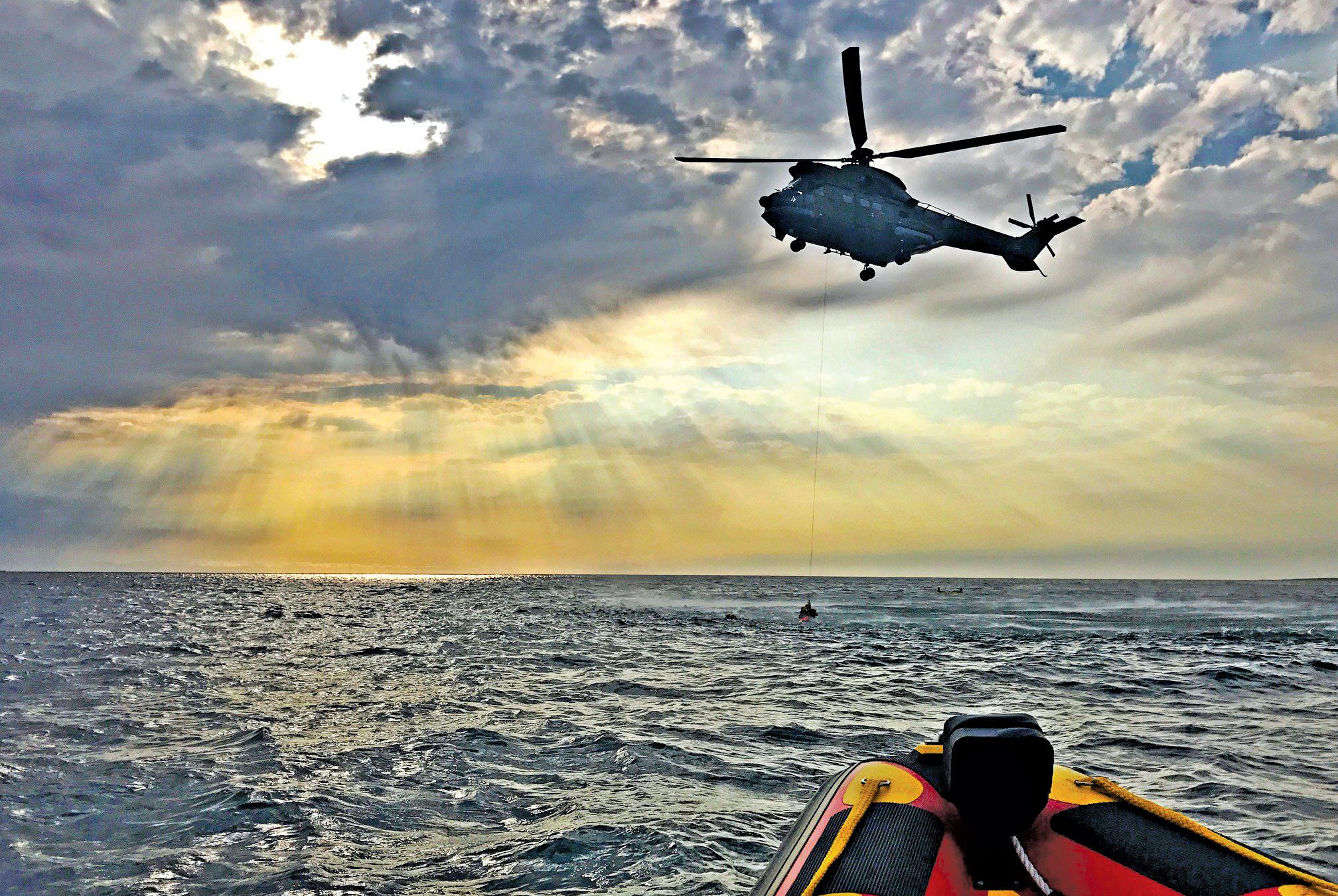
3 minute read
ON THE LINE
Rescue personnel are often placed in dangerous and tragic situations in the line of duty. We chatted to NSRI’s national trainer Enrico Menezies about his own experiences and why peer and family support, debriefing and counselling are so important. By Wendy Maritz
ON THE EVENING of 8 February 2010, Station 14 (Plettenberg Bay) was asked, together with a number of other rescue services, to assist the Air Rescue Coordination Centre (ARCC) in the search for a light aircraft with nine people on board, reported to have gone missing on the coastline between Wilderness and Plettenberg Bay. The plane wreckage was discovered the following morning in the waters off Robberg Nature Reserve. Tragically all nine passengers lost their lives.
Head of NSRI’s Training Department Graeme Harding was involved in the recovery operation and recalls what a profound effect it had on not only the rescue personnel directly involved, but also on the NSRI as a whole. ‘It put the spotlight on how we as an organisation should prepare our crews mentally for worst-case-scenario outcomes and use debriefing sessions to openly discuss how they are affected by such tragic events,’ he says.
Most often search efforts are exhaustive, but the reality of ‘search and rescue’ is that ‘rescue’ can become ‘recovery’. And when casualties are not found, the effects can be devastating. Enrico Menezies, former station commander at Station
31 (Still Bay) and Station 24 (Lamberts Bay) and current national trainer, has been involved in about 400 call-outs during the 17 years he has been with the NSRI. ‘The outcomes of rescues definitely affect the crew,’ he explains. ‘There were times in my career when we were not in time for a happy ending. Bringing the deceased home and getting closure for the families and yourself help you to deal with the tragic event. When you don’t find the casualty, you feel like you have failed; there is no closure.’
Enrico recalls an incident where he was involved in the search for a missing swimmer 5nm east of Stil Bay. ‘We searched for three days, and on the morning of the fourth day his body washed ashore.’ In another incident, an NSRI crew member rushed into the water on a beach in Mossel Bay after being alerted to a drowning in progress involving three children from the same family. She was only able to save one child.
There are many such stories. Each rescue scenario is different; each one presents its own unique challenges.
‘We often have the difficult task of telling family members that their loved one has passed away or wasn’t recovered,’ Enrico adds.
As much as a successful rescue brings joy and relief to rescuers and family alike, tragic outcomes will weigh heavily on everyone involved, not least on the rescuer who may have tried everything possible to save a life.
Enrico knows from personal experience that a single traumatic event can have a lifelong effect on an individual. He is candid about his own battle with post-traumatic stress disorder (PTSD) that followed his experiences in the South African Border War. There was a time when he lost everything due to its effects, but through the kindness and support of a friend he was able to rebuild his life. ‘There is no magic pill for PTSD,’

‘We also often have the difficult task of telling family members their loved one has passed away.’ Enrico Menezies
he says. ‘You need the courage to identify there is something wrong, listen to the people closest to you when they tell you that you’re behaving strangely, and accept the treatment and help offered to manage the condition. You cannot do it alone!’ ’
In their careers, rescue personnel will find themselves in dangerous and tragic situations – this is the nature of the work they do. These events may not necessarily manifest as PTSD, but they can cause anxiety and depression if there isn’t adequate trauma counselling in place.
NSRI volunteers have access to this kind of counselling, but Enrico encourages all crew to look out for and support each other. If someone is quieter than usual or has become withdrawn, it’s a sign they may need help.
Debriefings after training sessions and rescue operations are vital, he says, not only to review events and roles, but also to provide a forum for crew to express how they feel about how events unfolded. ‘Doing this helps provide answers, and answers bring us nearer to closure,’ he says.








